Senators Murray & Cantwell on prognosis for healthcare reform: A tough path ahead
The bill approved by the Senate's HELP (Health, Education, Labor, & Pensions) Committee, which Patty Murray sits on, includes a public option, which is the foundation of any real reform.
I thanked Senator Murray in person for repeatedly and publicly voicing her support of the public option, and asked what she thought about the future of the bill.
For Senator Murray, the principal work is over because she does not sit on the Finance Committee. That Committee, one of the Senate's largest, is chaired by Montana's Max Baucus, who is uncommitted to a public option.
When asked whether the whole Senate will be voting on legislation built around a public option, Senator Murray responded, "I just don't know". She acknowledged that the Finance Committee is currently in the driver's seat on the matter.
Later on, I met with Washington State's other Senator, Maria Cantwell, who is a member of the Finance Committee. I asked Senator Cantwell if she thinks a public option will make it to the floor. She hedged and said it might not happen.
Senator Cantwell told me that the bill will probably not be what I want. Note the pronoun choice: she used "I" instead of "we", even though she herself has claimed to be in support of a public option, which is how I phrased the question.
Why can't the Finance Committee go ahead and approve a bill with a public option? Well, first, because Chairman Baucus isn't sure his constituents are in favor of a public option (sorry, did I say constituents? I meant lobbyists) and, second, because Baucus wants the bill to have bipartisan support; as Senator Cantwell explained, three Republican votes are needed on the floor to pass a bill.
(See, letting a few Republicans dictate details - so we can bargain for their votes - is apparently more important than actually sticking to the principles the President has already promised that healthcare reform will be designed around).
My thought was, why do we need three Republican votes, Senator? Didn't the Republicans routinely pass bills with fifty one votes when they ran the Senate?
Senator Cantwell responded with an answer that would make any progressive who cares about any issue cringe. The United States Senate, she said, just doesn't operate in a purely democratic fashion. (At least not in the Harry Reid Era.)
She revealed that Republicans are filibustering pretty much everything; there have been ninety filibusters so far in this Congress. Worse, she believes reconciliation is not an option for a major issue like healthcare reform.
She further stated that if we could get enough Senators to ignore the traditions of the Senate, we would be able to pass bills with fifty one votes.
Of course, this is not Senator Cantwell's fault. Harry Reid leads the caucus. And he's letting conservative Democrats and Republicans control the Senate.
In other words, because Harry Reid is such an ineffective Majority Leader, sixty is the new fifty one. On paper, we have those sixty votes, but in reality, we don't, because Senators Kennedy and Byrd are ill and frequently not available. So even though we've got all these new freshman Democratic senators - a far cry from where we were in the last Congress, when Democrats barely controlled the chamber - we're still at the mercy of Republicans. Come again?
Max Baucus' stance that we have to find Republican votes for healthcare reform is thus blessed by the Majority Leader. But a growing number of Democratic senators seem to think he's just not doing a good job. There are rumblings that perhaps it's time to replace Baucus as chairman.
And if those answers were not discouraging enough, the Senate is dawdling with the Waxman/Markey bill. That legislation, H.R. 2454, which aims to curb emissions through the establishment of a "cap and trade" system, has only a forty to fifty percent chance of passing the Senate, according to Senator Cantwell, who believes a price needs to be put on carbon.
A big part of the President's progressive agenda looks imperiled at this point. Party because of weak Democratic leadership in the United States Senate.
Now is the time to call your Senators. The lines are, to use an old cliche, ringing off the hook. According to the folks who answer phone calls for our Senators, healthcare is a top issue of concern. Surprise, surprise.
Anecdotally, in the combined thirty minutes I was waiting to see the Senators I must have heard at least twenty calls about healthcare reform. Calls are coming in roughly even supporting the public option and going against it, staff say.
All we can do is continue applying pressure. Senators will soon be back at home and meeting with constituents about these issues during the August recess. They need to see nothing short of a tremendous progressive grassroots uprising to demonstrate that people are sick and tired of politics getting in the way of desperately need solutions in our nation's capital.






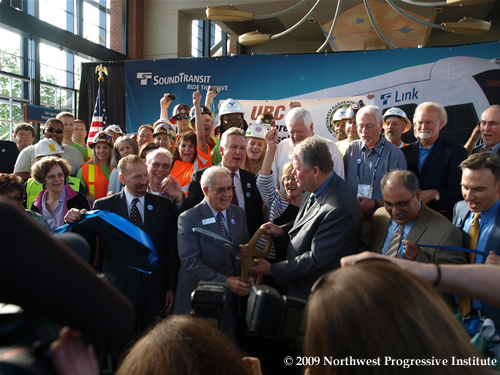
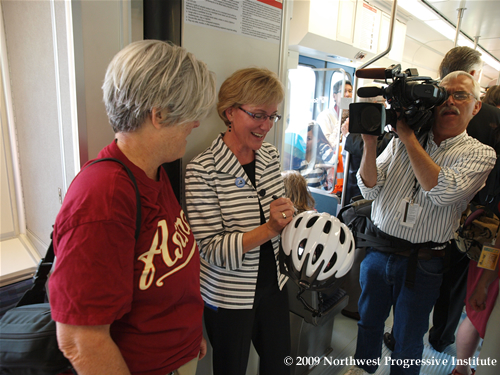



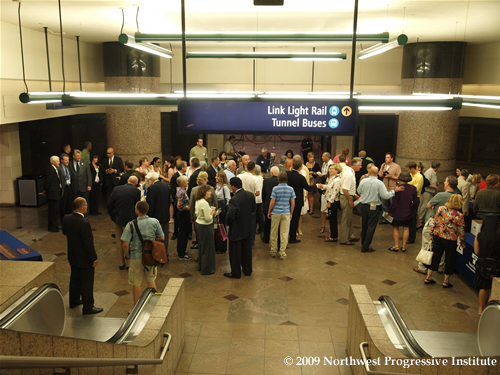



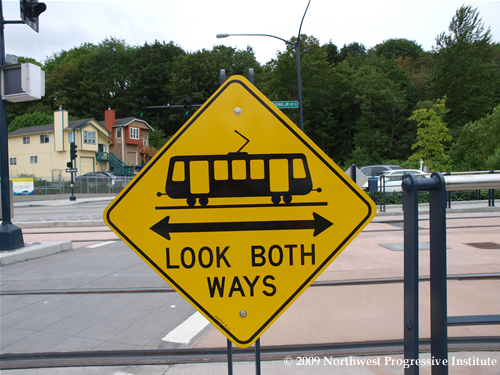

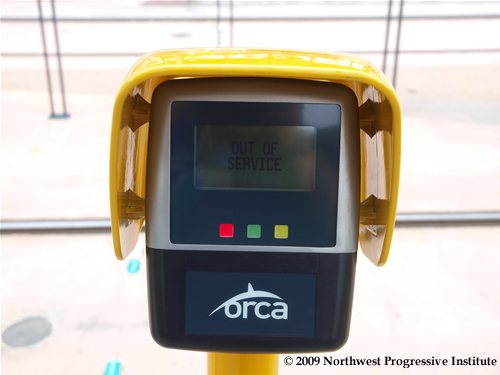
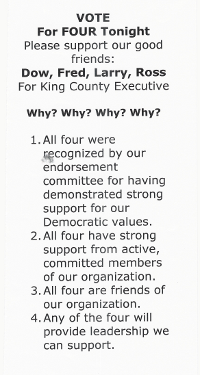 So for this meeting, several members of the district - who, for all I know, are apparently fans of that episode of Oprah where everybody got a car - decided to throw their weight behind the idea of endorsing all four.
So for this meeting, several members of the district - who, for all I know, are apparently fans of that episode of Oprah where everybody got a car - decided to throw their weight behind the idea of endorsing all four. 
